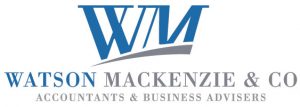Our fee for preparing a basic individual tax return starts from $190 plus GST. Where returns include rental properties, capital gains, business income or other complex matters, additional charges will apply based upon the complexity of the tax return.
Fees for services provided to business clients are determined based upon the time taken to complete the service, and can be estimated in advance upon request.
As a registered tax agent we receive automatic extensions for lodgement of our clients’ tax returns. Therefore you may not need to lodge by 31 October each year, and generally receive an extension until April or May of the following year (note that taxpayers with a poor lodgement or payment history will have earlier lodgement dates).
If you are a new client to our practice we suggest that you call us prior to 31 October, or as soon as possible so that we can register as your tax agent and receive an extension for you.
We lodge all tax returns electronically, so your return is lodged with the ATO on the same day as it is completed. The ATO generally process all electronically lodged returns within 1 to 2 weeks, so it is likely you’ll have your refund within this timeframe. However the refund is issued by the ATO, and from time to time they will hold up a refund for reasons unknown to us, and outside of our control.
Yes, we have bookkeepers that are experienced in most major bookkeeping packages.
For clients with a tax refund, we can deduct our fee from the proceeds via our Trust Account. The balance of your refund will be paid straight into your nominated bank account. The fee for this service is FREE.
Individual tax returns will often be completed within 5 days. For more complex individual and business returns it could take longer. The timeframe we aim for is 21 days from receipt of all information, but it can be a lesser time if it is required urgently. We will communicate with you to ensure we meet your expectations.
- Payment summaries from employers,
- Statements from your bank and other financial institution showing all transactions and interest,
- Dividend statements from companies,
- Summaries from managed investment funds,
- Receipts or invoices for equipment or asset purchases and sales,
- Receipts or invoices for expense claims and repairs,
- Rental property details,
Details may include rental statements from a managing agent (preferably the year end rental summary), council and water rates, insurance, land tax, advertising, corporate body levies, repairs and replacements, gardening costs and interest and fees paid on your loan (loan statements from the bank are the best source). Travel in relation to managing or maintaining your property is also deductible, and you should keep a list of kilometers traveled. - Union fees,
- Professional subscriptions,
- Seminar costs,
- Purchase and dry cleaning of uniforms or protective clothing,
- Stationery, home office costs, tools and materials,
- Computers, phones, laptops, tablets and other office items,
- Donations made to tax deductible charities (or the receipts), including voluntary contributions to school building funds,
- Details of motor vehicle expenses. This may include detail of kilometres travelled for work purposes, vehicle type and engine size, receipts for fuel, repairs, licence and insurance, and a log book,
- Details of capital gains on any assets sold (excluding your principal residence),
- Evidence of the sale and the original purchase. Examples include a settlement statement for property, or broker ‘buy’ and ‘sell’ notes for shares,
- ETP (eligible termination payment) statements issued by an employer on termination of work, or by a superannuation fund upon payout of your super monies,
- Costs of self education where the education is directly connected with your current work, Examples of costs are motor vehicle expenses between your workplace and study place, books, course fees, photocopying and stationery. Please note that HECS-HELP levies are not deductible.
- Travel costs for work purposes including airfares and accommodation,
This travel must be apportioned by time spent on work and private matters, supported by a detailed travel diary. - Details of foreign earnings including interest on overseas bank accounts or foreign pensions, and
- You must have written evidence for work related expenses over $300.
If you are a new client:
- Copy of last years tax return,
- Full name,
- Date of birth,
- Tax file number, and
- Health insurance information.
- Proof of Identity (newly required by ATO)
A BAS (Business Activity Statement) is a form issued by the ATO (Australian Taxation Office) to all GST registered entities. The BAs allows these entities to report GST related activity for the period. It may also include a section for PAYG (Pay As You Go) instalments of tax.
The IAS (Instalment Activity Statement) is the ATO’s method of collecting PAYG taxes withheld from employees of the trading entity, usually on a monthly basis. As mentioned, it also may be incorporated as part of the BAS, or it could be a standalone document.
A PAYG income tax instalment is the ATO’s method of collecting this year’s predicted income tax for the individual, company or SMSF based on prior year tax liabilities. The BAS may also include a section to report wages paid and taxes withheld.
A discussion about your current and future goals needs to take place. What may be appropriate today may be unsuitable for tomorrow, so sometimes business structures evolve over time. The standard structures are as follows:
- Sole trader,
- Partnership,
- Company,
- Trust.
- Discretionary Trust.
- Unit Trust,
- Or a combination of these structures.
Sole traders and partnerships may be suited to smaller businesses, including family businesses.
Trusts and companies are often used for larger businesses
These entities may provide some taxation advantages, but come with a higher level of compliance and complexity.
With analysis of your circumstances then we can arrive at the appropriate recommendation.
The ATO requires a high standard of record keeping. Our advice is to keep good records of all transactions, and to preferably use one or two business accounts which show the bulk of your transactions. The ATO also publishes very useful guides for your information, such as:
- Record keeping for small business (NAT 74242)
- Tax basics for small businesses (NAT 1908)
- GST (NAT 72420)
- How to set our tax invoices and invoices (NAT 11675)
Our business is built on building client relationships that lasts for many years, and giving a level of personalised service and care that exceeds other accounting firms.
We ensure that you are treated with the utmost urgency and will return calls or emails that day and will always take on every concern.


